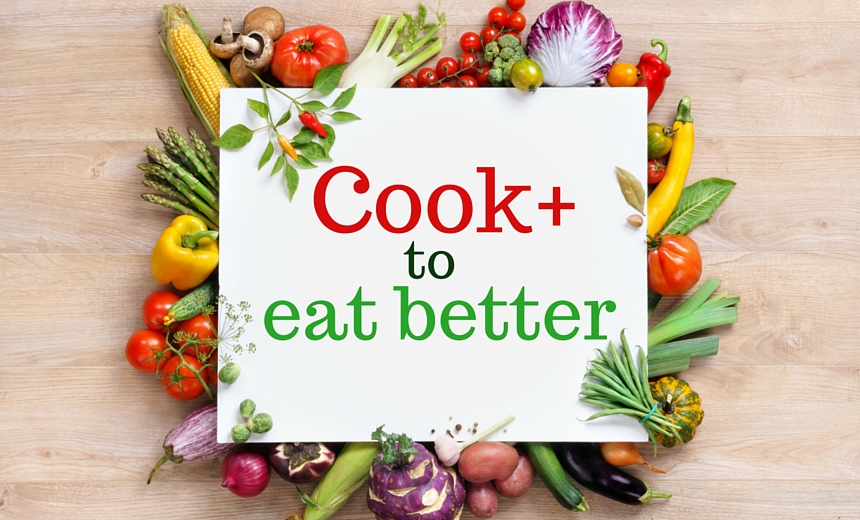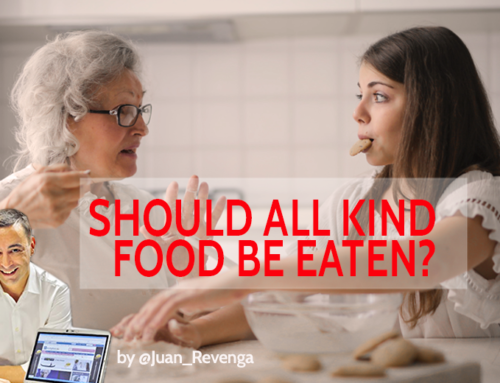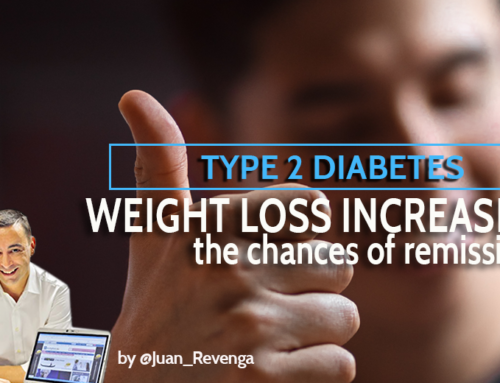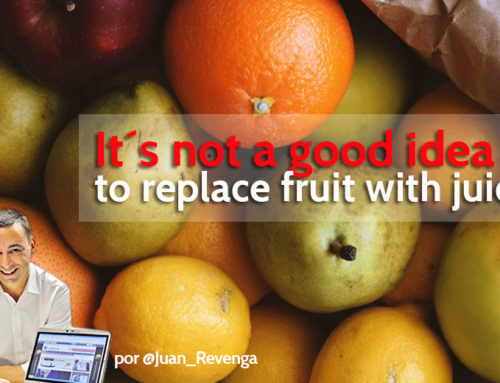Cook more to eat better
Every time we cook less. The progressive loss of culinary skills has worsened the quality of our diet and has increased the figures of obesity in the population. It has shown that cooking is a key tool for improving dietary habits and with them the prognosis of health.
Few messages are so clear in promoting proper eating habits as it is the fact of cooking at home. Despite this is being a matter “of fashion” (just take a look at TV with the amount of programs that the kitchen is the common thread) but every time we cook less and worse. We have moved the kitchen culinary activity to plasma screens to see as other people elaborate recipes with “deconstructions” of traditional dishes, or ‘spherifications’ with liquid nitrogen, while we, the spectators, don’t know make a boiled egg . And of course, as we don’t make it neither we eat it, and instead we ended up making other food choices that are usually farthest from the convenience of healthy dietary, normally processed products and packaged food, that broadly meet a worse nutritional profile.
Who most cooks have better eating habits

We do not know if there is a clear cause/effect relationship between the time dedicated to cook and a certain dietary profile. However it is known (based on multiple observations) that who most cooks has better eating habits. This study (The role of culinary skills in food choices) emphasized some interesting relationships:
- For both men and women, who cooks more makes a greater incorporation of vegetables into their diet.
- Among women who spends more time in the kitchen more interest and concern observed by health issues, while there is a lower consumption of sugary drinks.
- For men, the most cooks make less use of either sweet or salted snacks.
- Among the groups that least cook is being observed an increased use of pre-cooked products and other “convenient” elements as ready-made sauces, stock cubes, etc.
The children, a motivation to cook more
It was also observed that the presence of children at home was a significant predictor of culinary skills. To have children at home serves as a lever to cook more. It is doubly beneficial: parents transmit these healthy habits.
 But there are more publications that highlight this type of relationship between cooking more and eat better. In this other study (“Is there a relationship between cooking at home with a better diet quality or with the weight loss?”) It was analyzed the behavior of about 9,000 subjects and it is contrasted to that cooking frequently was related to a significantly healthier food consumption pattern as if they intended to lose weight as if not. It is not surprising therefore, that the authors of the study completed by calling health authorities to make these dietary guidelines include a clear and concise recommendation to encourage people to cook in order to improve their feeding patterns.
But there are more publications that highlight this type of relationship between cooking more and eat better. In this other study (“Is there a relationship between cooking at home with a better diet quality or with the weight loss?”) It was analyzed the behavior of about 9,000 subjects and it is contrasted to that cooking frequently was related to a significantly healthier food consumption pattern as if they intended to lose weight as if not. It is not surprising therefore, that the authors of the study completed by calling health authorities to make these dietary guidelines include a clear and concise recommendation to encourage people to cook in order to improve their feeding patterns.
Very similar recommendations can also be derived from another interesting publication (“Time dedicated to cooking and indicators of healthy eating”) The higher the time users engaged in cooking, better indicators of diet quality were observed. Among the less cooking group it was found that its priorities were focused on the convenience of time and not in matters of diet. In consequence, they choose the worst pattern of food consumption.
Why if we cook we eat better?
There are three points that penalize processed foods and pre-cooked dishes: an excessive amount of sugar, salt and unhealthy fat. They have also lower proportion of fiber and micronutrients characteristic in the pre-cooked dishes as opposed to the same recipes cooked at home from fresh products.
The benefits of cooking are both: the change of bad habits we have and the goodness of using fresh products.
Jamie Oliver’s ‘Food Revolution’
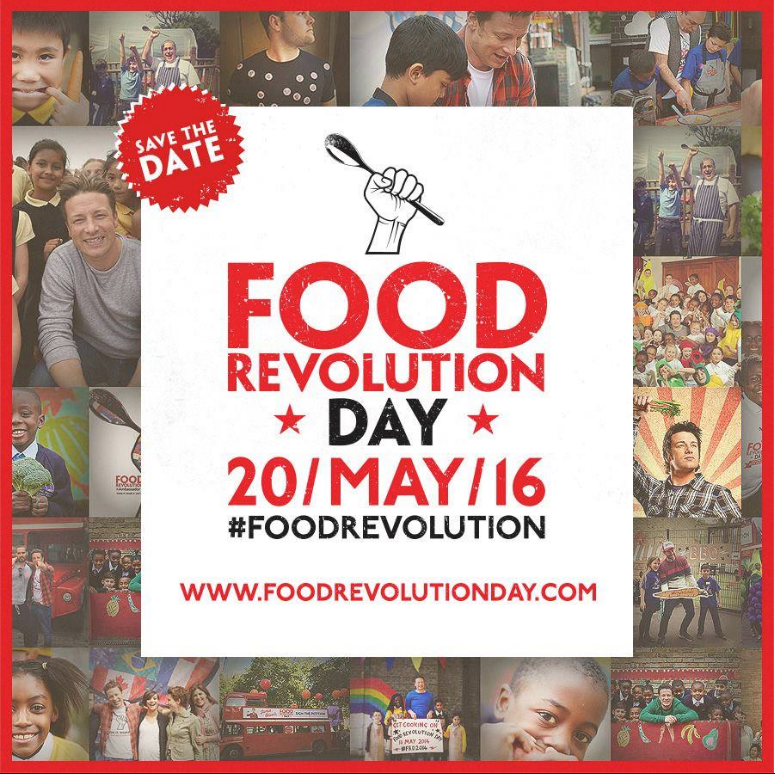 We could verbalize this message: “cook what you eat is good for your health”. Health authorities have rarely included this concept in dietary guidelines that target the general population. However, that’s perfectly recognizable in some campaigns such as the renowned chef Jamie Oliver (especially focused in spreading best dietary habits among the general population) and his Food Revolution. With this ‘revolution’ he is committed to recommending the use of “real food”, not processed or pre-cooked. Thus, in the manifesto that synthesizes his campaign, celebrating its day on May 20th
We could verbalize this message: “cook what you eat is good for your health”. Health authorities have rarely included this concept in dietary guidelines that target the general population. However, that’s perfectly recognizable in some campaigns such as the renowned chef Jamie Oliver (especially focused in spreading best dietary habits among the general population) and his Food Revolution. With this ‘revolution’ he is committed to recommending the use of “real food”, not processed or pre-cooked. Thus, in the manifesto that synthesizes his campaign, celebrating its day on May 20th
Food Revolution Day is an annual global day of action that celebrates good, fresh, real food. It’s a day to shout about the benefits of cooking from scratch and, ultimately, to show people that not only is fresh food tastier, changing their food choices can also make them healthier and happier. This year Food Revolution Day is, above all, about sharing the power of cooking!
Therefore, from now on let´s cook more and better to preserve our health and the health of our relatives, while avoiding quick fixes, processed food and takeaway meals.
By Juan Revenga, dietitian-nutritionist and biologist
Latest posts by Juan Revenga (see all)
- New hopes of a cure for type 2 diabetes - 16 September, 2016
- Hydration, calories and diabetes: a dangerous triangle - 19 July, 2016
- The myths of breakfast (or the “most important” meal of the day) - 22 June, 2016



